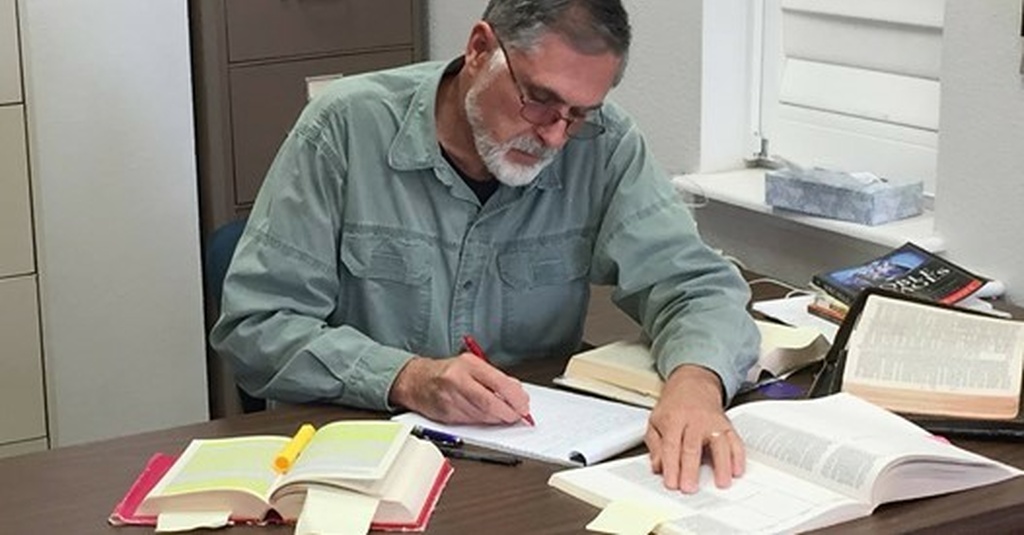
Refusal to Work
Man was created to work even in Eden. A refusal to work reveals one’s sense of purposelessness and, to a large extent, a surrender to it. Ideas have consequences, and the results of our culture’s departure from Christian faith are, in multiple ways, manifesting themselves all around us.

- Mark R. Rushdoony
I have lived in Calaveras County, California, for 46 years. It has a population of 46,000 spread out over a thousand square miles. The differences in its economy since my arrival have been dramatic. Fewer businesses serve the population, and many services are now hard to come by. Part of this is explicable because of near-universal phenomena. Fewer large corporate stores forced smaller independents out, the baby boomer generation is now largely retired, state regulations, plus local opposition to development play a part. But there are also fewer independent service providers as well. It is hard to find an appliance repairman, a locksmith, or a backhoe operation, for instance.
Mike Rowe, of “Dirty Jobs” fame, has called attention to the need for, and opportunities in, the trades where there is an increasing need and shortage of well-paid workers (without the need of college debt). But fewer people are interested in pursuing such careers these days, still equating them with a lower social status.
But there is more. In his book Men without Work, Nicholas Eberstadt notes a unique characteristic of the American economy: men are refusing to work at all! Of men 20—64, a full 22% are not engaged in work of any kind. These men are not included in unemployment numbers, yet they out-number those looking for work 3:1. This is a uniquely American phenomenon. Of 23 countries with “Western” affluent economies, the U.S. is 22nd in the percentage of its working age men who do no work (we are only ahead of Italy). Welfare alone is not the cause; many of those 22 countries have very accessible programs.
When 22% of men have dropped out of the labor force, there is an underlying malaise that is spiritual in nature. Man was created to work even in Eden. A refusal to work reveals one’s sense of purposelessness and, to a large extent, a surrender to it. Ideas have consequences, and the results of our culture’s departure from Christian faith are, in multiple ways, manifesting themselves all around us. “All they that hate me love death,” Proverbs 8:36 tells us, and that is increasingly apparent in our society.
The only hope is the moving of God’s Spirit and His regenerative transformative power. This is why we are commanded to pray “Thy kingdom come, thy will be done in earth as it is in heaven” (Matt. 6:10).
Chalcedon is about kingdom work and we are grateful for those who partner with us in this very purposeful work.

- Mark R. Rushdoony
Mark R. Rushdoony graduated from Los Angeles Baptist College (now The Master’s College) with a B.A. in history in 1975 and was ordained to the ministry in 1995.
He taught junior and senior high classes in history, Bible, civics and economics at a Christian school in Virginia for three years before joining the staff of Chalcedon in 1978. He was the Director of Chalcedon Christian School for 14 years while teaching full time. He also helped tutor all of his children through high school.
In 1998, he became the President of Chalcedon and Ross House Books, and, more recently another publishing arm, Storehouse Press. Chalcedon and its subsidiaries publish many titles plus CDs, mp3s, and an extensive online archive at www.chalcedon.edu. His biography of his father will be published later this year (2024).
He has written scores of articles for Chalcedon’s publications, both the Chalcedon Report and Faith for all of Life. He was a contributing author to The Great Christian Revolution (1991). He has spoken at numerous conferences and churches in the U.S. and abroad.
Mark Rushdoony has lived in Vallecito, California, since 1978. His wife, Darlene, and he have been married since 1976. He has four married children and nine grandchildren.